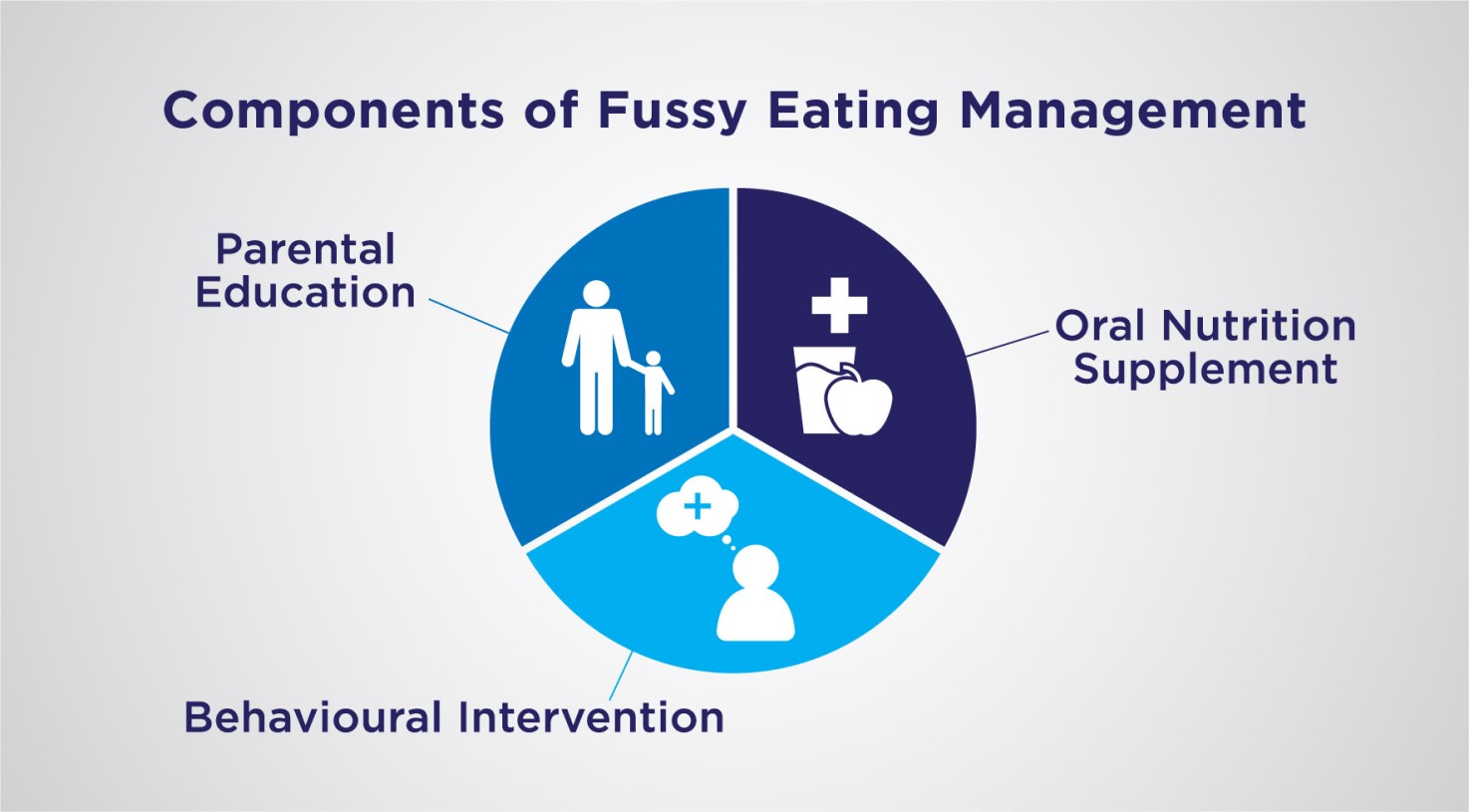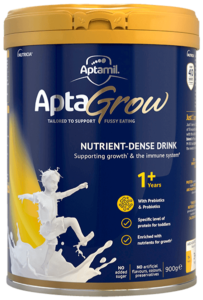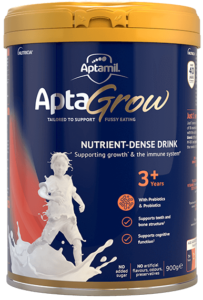Fussy Eating Overview
Fussy eating is defined as unwillingness to eat familiar foods or try new foods, severe enough to interfere with daily routines to an extent that is problematic to the parent, child, or parent-child relationship1. Hence fussy eaters will typically have a routine diet that is characterised by:
- low quality of foods
- low quantity of foods
- low variety of foods2.
This could have consequences on the child’s dietary intake, overall health, growth and development.3,4
1. Taylor C.M. et al., (2015) Picky/fussy eating in children: Review of definitions, assessment, prevalence and dietary intakes. Appetite, 95:349-359.
2. Levene I.R. & Williams A. (2018) Fifteen-minute consultation: The healthy child: “My child is a fussy eater!”. Archives of Disease in Childhood-Education and Practice, 103(2):71-78.
3. de Barse L.M. et al., (2015) Longitudinal association between preschool fussy eating and body composition at 6 years of age: The Generation R study. International Journal of Behavioral Nutrition and Physical Activity, 12(1):153.
4. Volger S. et al., (2017) Nutrient intake and dietary patterns in children 2.5-5 years of age with picky eating behaviours and low weight-for-height. Asia Pacific Journal of Clinical Nutrition, 26(1):104-109.
Fussy Eating Expert Lectures and Resources
Sign up to Danone Nutricia Campus, our open science education platform for healthcare professionals. View expert opinions on fussy eating from around the globe.
Fussy Eating Solutions

1. AptaGrow is a Food for Special Medical Purposes. Must be used under medical supervision. Not suitable as a sole source of nutrition, designed to be consumed in conjunction with a healthy varied diet.
2. Recommended Daily Intake (RDI) for iron, zinc and vitamin D, based on the NHMRC Nutrient Reference Values.
AptaGrow Range

AptaGrow 1+ years

AptaGrow 3+ years

AptaGrow 6+ years
Patient Resources

Recipe eBook
Support for you and your patients
Join now and learn about our education events, research initiatives and evidence-based resources – furthering your professional development and clinical practice.
Support for you and your patients
Support for you and your patients
Join now and learn about our education events, research initiatives and evidence-based resources – furthering your professional development and clinical practice.


